lightyear 0 can drive for months without charging using solar-panel roof
Minimizing plug-charging
Lex Hoefsloot believes that the use of electric cars moves society in the right direction, but the car designs have a scaling problem and that by 2030, 84 million electric vehicles (EVs) can be expected to run on roads in Europe alone. ‘There is no hiding from it. Access to charging stations will not keep up with the demand for electric cars. To minimize plug-charging and maximize range, the industry’s strategy, so far, has been to add batteries. That increases the carbon footprint of production and, in turn, boosts weight and the need for high-power charging stations,’ he shares. Forming part of his personal response to what he deems an industry challenge, he co-founded the company Lightyear and has recently introduced Lightyear 0 to the public, a solar-ready car that imbues his strategy of delivering more range with less battery, reducing weight and CO₂ emissions per vehicle.
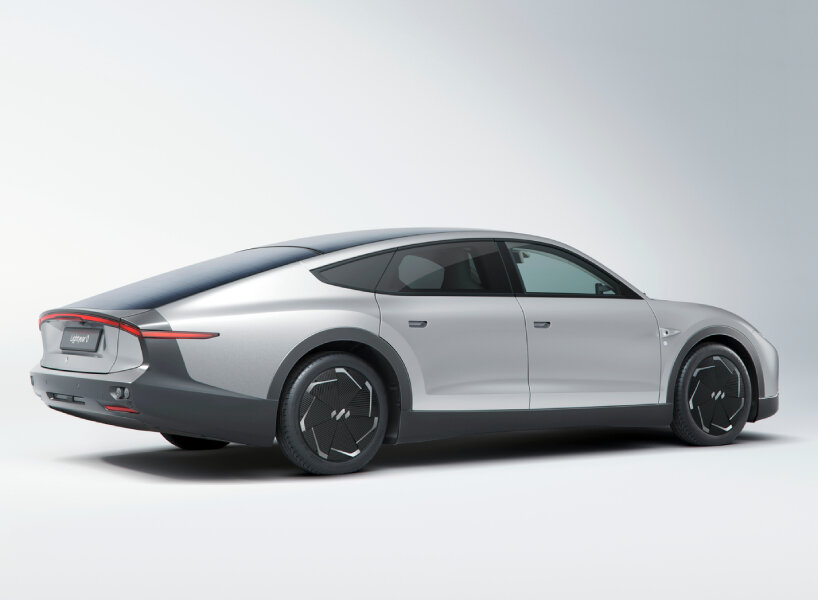
images from Lightyear
The sun is its source
What makes the vehicle solar-ready lies in its optimized solar roof, a design approach that means the car can drive for weeks, even months, without charging. ‘In cloudy climates, based on the average commute of around 35 kilometers per day, you can drive for up to two months before you need to think about charging. In sunnier countries, that could be up to seven months,’ the company shares.
The company claims that its technology allows users to transform any power outlet across cities into a charging station, stating that even when the vehicle is plugged into a regular home socket, Lightyear 0 can still charge 32 kilometers of range per hour. ‘And for Lightyear 0, the range doesn’t start and finish with plugs and sockets. The sun is its source.’ Stepping inside the car, the interior is clothed with plant-based leather, fabrics made from recycled PET bottles, and wooden-deco elements from restructured rattan palm, everything stitched into every seam of Lightyear 0’s high-quality design.
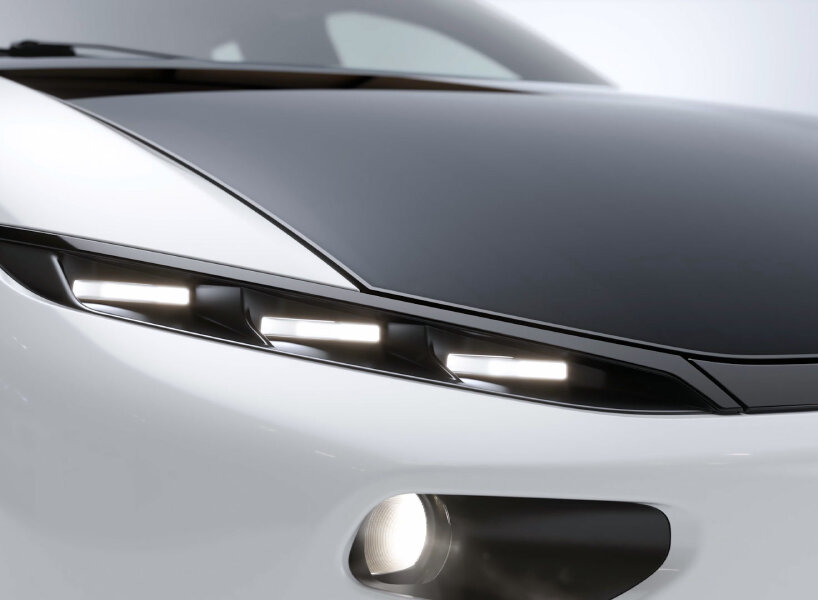
lightyear 0 can drive for months without charging using solar-panel roof
Carbon fiber materials
Its outer body panels are also made from reclaimed carbon and residual carbon fiber materials that would otherwise go to waste. ‘With Lightyear 0, the sun is your source. Tapping on your intuitive infotainment system, you see that the sun boosted your range by 20 km while you were away. Depending on the climate, you could yield between 6,000 to 11,000 kilometers of free, effortless, and clean range every year,’ the company writes. The vehicle also has a battery pack with a high energy density and a relatively low weight, a thermal integration system to re-use any residual heat, a chassis and frame made from aluminum and carbon fiber to reduce the car’s weight, and four independently controlled in-wheel motors.
On June 9th this year, Lightyear 0 was unveiled via an online global premiere where Hoefsloot showcased the final design and the car’s specifications and capabilities. The company feels the core technologies that make Lightyear 0 unique were outlined during the presentation as they revisited our roots, mission, and strategy. ‘That is important, because our first and exclusive series Lightyear 0 will pave the way for an ambitious mission, stretching as far as every corner of the earth. Clean mobility for everyone, everywhere.’
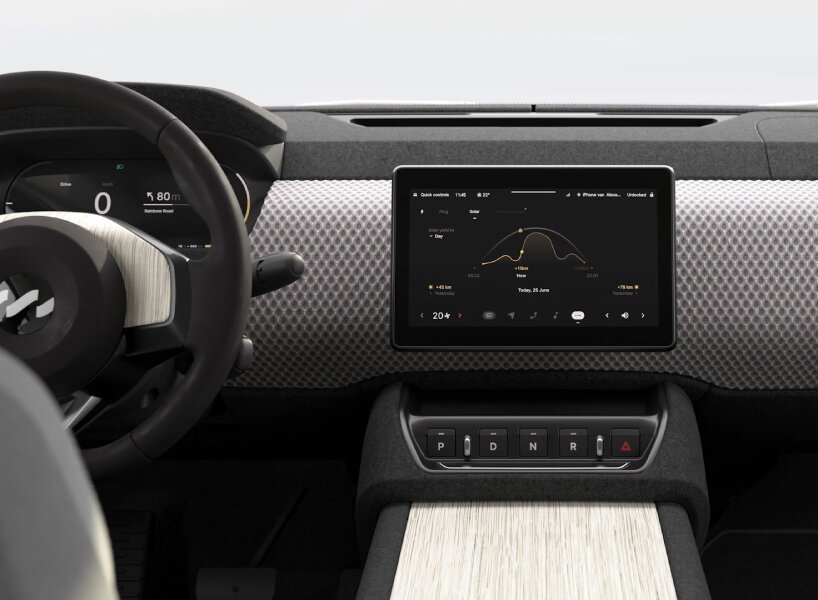
interior look
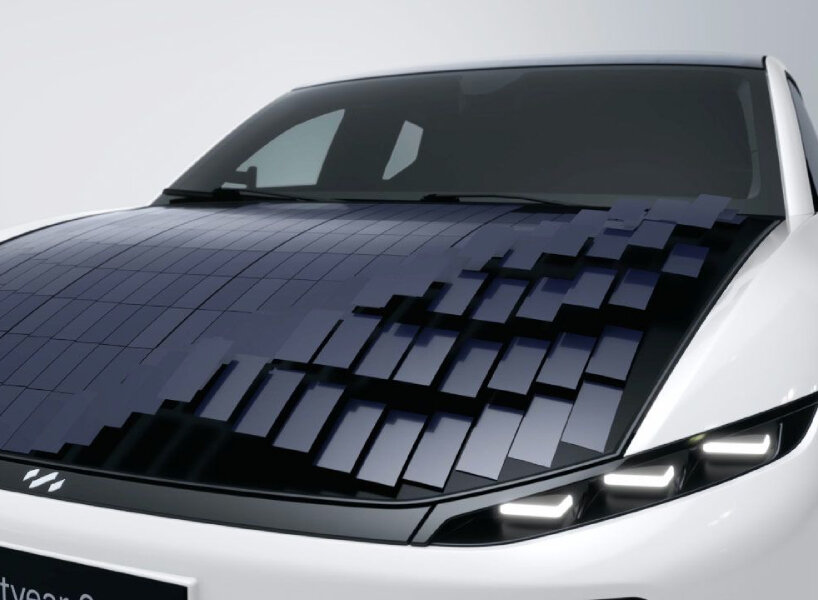
sola-panel roof
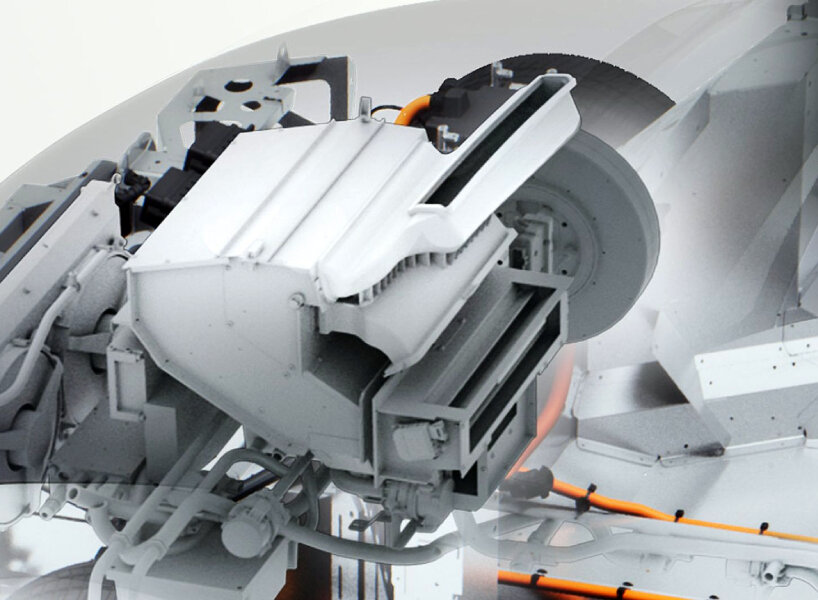
thermal integration system
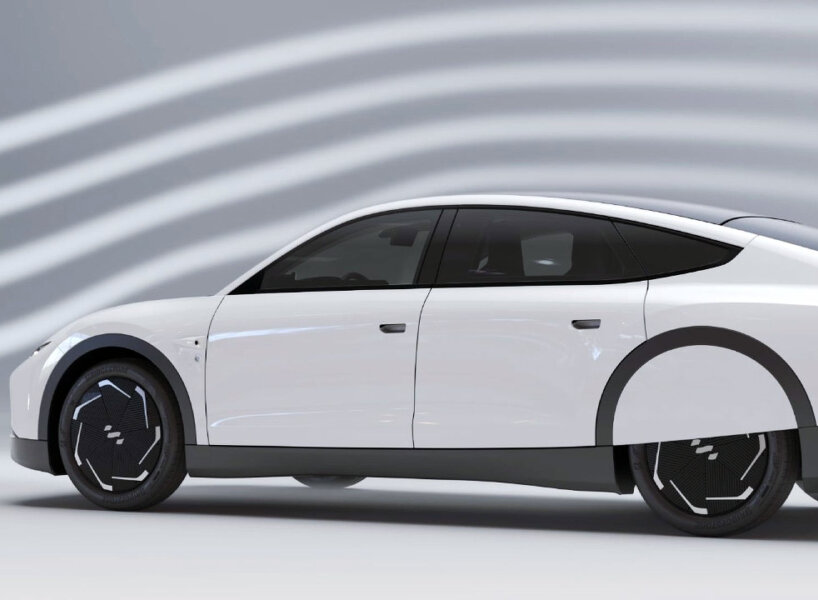
white variant of Lightyear 0


